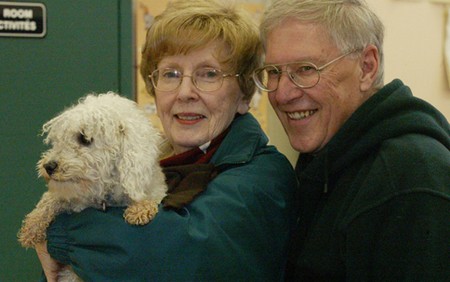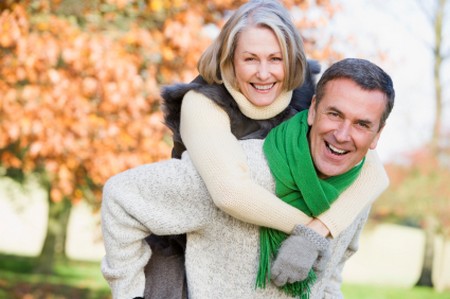About half the fatal accidents in the home happen to those over the age of sixty-five. With many elderly people the problem is how slowly and tactfully to change their lives. There are two major options for people who would like to make sure their elderly parents are taken care of: find them an assisted living facility like the one at www.orchardparkofpermianbasin.com/our-community/, or ask them to move in with you.
You should be able to make things easier for elderly relatives without them feeling that you think they are incapable of anything, but if that can become difficult for you then you could consider looking into In Home Hospice Care as an option and if you are in the area consult with professionals at palmvistaseniorliving.com to see if they are a great option for your loved one.
There are many places you can find assisted living homes, just visit different websites like the www.carltonseniorliving.com/location/pleasant-hill-downtown/ website and get some advice.
If you can, find out about installing a personal-alarm system which could put both your and their minds at rest. That way all they need do is press a button to get professional help, no matter how far away you are at the time. Your best bet of course, would be for you to hire a team of home care professionals that could assist them at home, checking in every day or two for a few hours, or fulltime. A home care professional present would prevent most accidents and provide help in situations where there could be a potential hazard. Make sure their home is as vandal-proof as possible and always do things before being asked – otherwise you could wait a long time: most old people are rightly proud and loath to ask for help. An entryphone and telephone in a convenient position means that they do not have to rush to answer the door. If you need to find an assisted living community for a loved one, then consider checking out Chelsea Senior Living online.

The hazards
Cold
As you get older it becomes increasingly difficult to maintain a constant body temperature. At the same time you grow less sensitive to changes in external temperatures. The combination of these means that old people can often be cold without feeling so. If their body-temperature falls below 95° F (35° C), hypothermia sets in; if it is not treated at once, this can be fatal.
It is important that the home of any elderly person is kept above 61″ F (16° C). If you find it is not, you must turn up the heating, make sure they have on enough thick clothes or light blankets and make warm drinks. Work out for them the most economical heating system and check the insulation in their home biannually with the aid of a heating maintenance service like this Spokane Valley furnace repair. Also make sure that their rooms are well ventilated and kept slightly moist, not damp, as the dry air caused by heating can make chest infections worse. If you’re running on a furnace system then you’ll at least need a contact for heating oil delivery to keep the fuel burning. You may also visit sites like https://7servicesinc.com/heating-installation/ for additional guidance.
Never rely on the old saying they do not feel cold. If you notice that they are saying they feel warm in a bitterly cold room, they could already be suffering from hypothermia. Other danger signs are drowsiness, slurred speech and parts of their body normally kept covered, such as the stomach or armpits, being very cold. If in any doubt, move them immediately into warmer surroundings, wrap them in a light layer of blankets, give them a warm nourishing drink and call the doctor. Do not give them alcohol as it will further stimulate heat loss, and do not suddenly change their temperature by sitting them next to a fire or giving them a hot water-bottle.
Fires
All fires should be protected. They should not be able to be knocked over or fallen against. In the kitchen make sure there are special safety gas or electric stove and oven controls with easy-to-manage knobs and with warning lights which show when appliances are on.
Falls
The elderly are often far more unsteady on their feet, so it is not surprising that falls are the most frequent accidents in the homes of the elderly. As elderly bones are more brittle than those of a younger person and take longer to mend, it is especially important to prevent falls. Floors must be kept in perfect condition with nothing left on them that could trip someone up. Plan the home of an elderly person so that there is as much storage space as possible within easy reach, involving as little bending or climbing as possible.
Check that rugs and stair carpets are not worn or torn and floor tiles are not peeling up. All carpets should have a non-slip backing and the floor underneath them should never be polished. There should be at least one firm handrail on the staircase. Seek professional advice on having handholds fitted around the bath and toilet.
Medicines
Sleeping pills and strong medication should not be left beside an elderly person’s bed. All medicines should be clearly labelled and you should never change their pills from one container to another. Make sure they can open any child-proof container on their own and read and understand the doctor’s instructions on the label. You can opt for home care if they need assistance with their medication. By visiting https://www.oxford-healthcare.com/tulsa-home-care-services/, you can see how home care can benefit an elderly person.
Kitchen equipment
Bear in mind that the old often have less reliable memories and slower reactions, which can be dangerous in the kitchen. Invest in automatic equipment, such as an electric kettle which turns itself off or a thermostatically controlled deep-frying pan which can never burn. However, never force them to change to equipment you enjoy using. If they feel happier with something they have had for years, and know how to use, check it is safe, have it serviced and let them carry on using it.
Remove any chipped or broken crockery and place a plastic bowl in the kitchen sink to avoid breakages. Make sure saucepan handles are firmly fixed and brightly coloured so they are easy to find. Can openers should be easy to use and tap handles to turn on and off- find out about taps that can be operated with wrists and elbows.
Lighting
Make sure all rooms and corridors have night-lights and lights that are easy to turn on with two-way switches. Also lighting should be bright enough so that any elderly person does not have to strain their eyes, particularly when reading. Though less attractive, fluorescent lighting is often easier to see by than an ordinary tungsten bulb.
In the garden too, it is important that paths and steps are well lit and paving stones level. The path should be kept clean and dry; fallen leaves and moss should be removed.

In bed
An electric overblanket which can be left on all night is safer than an under-blanket. In cases of incontinence an electric underblanket should not be used, and the mattress should be covered with a waterproof rubber sheet to protect it.
A personal stereo is a useful friend for long, lonely nights. Listening to a concert or other people’s problems on the radio brings a sense of contact with the outside world and can lessen feelings of loneliness. And soothing music is just the tonic for a restful night’s sleep.